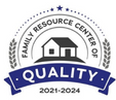According to a Wells Fargo survey, 44 percent of Americans see personal finance more challenging to talk about than death, politics, and religion. Money problems can elicit emotions such as anxiety and guilt or shame. There is evidence that financial instability has far-reaching effects on us and our families. Studies have shown that children who are from families who are financially stable thrive both physically, academically, and emotionally compared to children from homes where money is a major stressor.
According to the website WalletHub, New Hampshire ranks as the 15th most financially literate state in its 2023 recent findings analyzed financial education programs and consumer habits combined with the results of their own survey on financial literacy. However, the state was ranked 35th in financial knowledge and education, based on the share of people who took personal finance courses in school or attended financial-counselling sessions. With over $1 trillion in credit card debt in this country, crushing student loan debt and less than half of adults with a budget, financial education is more important now than ever before so that our society has more financial freedom and the understanding of how to make informed financial decisions. I attended an open house event at a local college and a faculty member was drawn to our table because he saw the words “money coaching” on our poster board. He proceeded to tell his experience of how this most recent batch of incoming freshmen didn’t understand how to write a check or balance a checkbook. Given that everything is automated now, this is no surprise, but what this also means is that students aren’t tracking their expenses or understanding their spending habits. By not balancing their accounts, they aren’t spotting fraud or tracking bank fees. He was floored by their lack of knowledge. This school marks the first year that New Hampshire high school students must take a half credit of financial literacy. Governor Chris Sununu signed HB 1671, which made personal finance a graduation requirement. Giving our youth the tools to know how to budget, save money, and invest allows them to make better financial decisions that could have an impact on their future and financial goals such as buying a house. These decisions include knowing whether you should have a credit card, what insurance to get, whether you should go to college. The current student debt crisis means that students didn’t know what they were getting into when they took out student loans for college and many current students can’t even tell you how much they are paying for it. Recently, we held a presentation, 12 Steps to Financial Health for Women and all the women in attendance were energized by the knowledge they gained from the 1.5-hour presentation. One participant wrote, “It was a great start on the path of educating myself about finances. I wish I would’ve started sooner!” While we did not start sooner, there is hope for our children to have more financial savvy than we did at their age. Financial stability is more than just paying bills on time and avoiding debt. Knowing how to save, spend, and invest enables families to have safe housing, better health, strong connections to their communities and more secure futures. The River Center Family and Community Resource Center offers free one-on-one money coaching, presentations on money topics, programs such as Financial Peace University, as well as a free tax preparation program for eligible taxpayers. Participating in any of these activities is just one way to educate yourself about money. We have so much information right at our fingertips such as online videos, podcasts, websites, blogs, and vlogs. It is never too late to learn to make lasting changes. Last night, my husband and I sat down for the first time in a very long time and laid out our entire money souls for the both of us to see. It was sobering for sure, but it was also liberating. There was a little joke about wishing we could win the lottery, but we’ve come out of it with so much more confidence and the weight of avoiding money talk was lifted off of our shoulders. We owe it to ourselves and our families to have a healthy relationship with money. By continuing to learn and keep talking about finances, financial freedom can become the norm and not the exception. The River Center: A Family and Community Resource Center provides parent education, family support, and community connections in a welcoming environment to strengthen individuals and families in Peterborough, Jaffrey, New Ipswich and surrounding towns. Funding comes from Monadnock United Way, New Hampshire Charitable Foundation, and the generous contributions of individuals, businesses, and private foundations. We are located at 9 Vose Farm Rd., Suite 115, Peterborough. For more information please call 924-6800 or visit our website at www.rivercenternh.org. By Nisa Simila, Communications and Money Matters Coordinator The River Center (603) 924-6800 ext 14 [email protected]
0 Comments
Leave a Reply. |
|
Subscribe to our newsletter |
Copyright © 2024 by The River Center


 RSS Feed
RSS Feed



